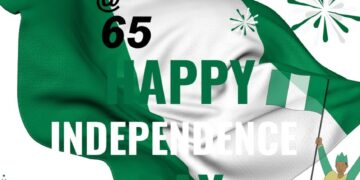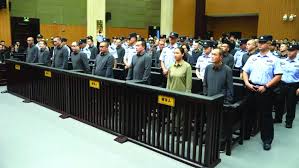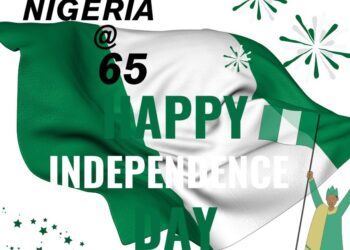By Oluchi J. Okorie
Source: Tribune Online



On the morning of October 1, 1960, Lagos was alive with celebration. Crowds filled the streets, waving miniature flags, singing songs, and waiting eagerly for a moment that
generations before them could only dream of. Then, at midnight, the Union Jack was lowered, and in its place rose the green-and-white flag of a new nation—Nigeria. In that moment, Africa’s most populous country took its first breath of independence. But the journey to that day was not sudden; it was the outcome of years of sacrifice, agitation, and vision by men and women who dared to believe Nigeria could stand on her own.
COLONIAL BEGINNINGS
The Nigeria we know today was not born naturally but created by colonial convenience. In 1914, the British, under Lord Frederick Lugard, merged the Northern and Southern Protectorates into one administrative unit called Nigeria. For Britain, this was a matter of economics and efficiency, but for Nigerians, it was the start of a complicated national experiment. Over 250 ethnic groups, each with its languages, traditions, and identities, were now forced under a single colonial structure.
What Britain did not foresee was that this merger would sow seeds of unity in struggle—that in the years to come, Nigerians would find common ground in the shared desire for self-rule
THE RISE OF NATIONALISM
The first whispers of resistance came in the 1920s and 1930s, when educated elites began to challenge colonial authority. One man, Herbert Macaulay, stood out. Known as the “Father of Nigerian Nationalism,” Macaulay used his newspaper, The Lagos Daily News, to expose injustices and stir political consciousness. He gave Nigerians the language of resistance and the confidence to demand something greater than colonial subjugation.
By the 1940s, those whispers had become a chorus. Political parties began to emerge, transforming scattered agitation into organized movements. Nnamdi Azikiwe—charismatic, eloquent, and unrelenting—rallied millions in the East under the National Council of Nigeria and the Cameroons (NCNC). In the West, Obafemi Awolowo built the Action Group, championing federalism and social progress. In the North, Ahmadu Bello, the Sardauna of Sokoto, steered the Northern People’s Congress (NPC), carefully balancing tradition with the push for reform.
Each leader reflected the heartbeat of their region, but together they carried the collective dream of independence.
The British, pressured both at home and abroad, responded with gradual constitutional changes:
1. The Clifford Constitution of 1922 introduced limited elections, the first taste of electoral politics in Nigeria.
2. The Richards Constitution of 1946 created regional assemblies but left most power in colonial hands.
3. The Macpherson Constitution of 1951 was more consultative, expanding Nigerian influence in governance.
4. Finally, the Lyttleton Constitution of 1954 gave the regions significant autonomy and laid the foundation for federalism.
These reforms, though imperfect, provided Nigerians the opportunity to sharpen their political skills and prepare for sovereignty. By 1957, the East and West had attained self-government, with the North following in 1959. That same year, Nigeria held its first nationwide elections—an exercise that set the stage for freedom.
INDEPENDENCE DAY
Then came the day that changed everything—October 1, 1960. In Lagos, the air was thick with anticipation. People gathered in their numbers to witness history: the lowering of the Union Jack and the hoisting of Nigeria’s green-and-white flag. It was more than a change of symbols; it was the reclaiming of dignity, the beginning of a new chapter.
Sir Abubakar Tafawa Balewa became Nigeria’s first Prime Minister, his words that day carrying both hope and responsibility: a call for unity, peace, and progress. Three years later, in 1963, Nigeria became a republic, with Dr. Nnamdi Azikiwe as its first President.
Independence did not erase Nigeria’s complexities. A nation of many tongues, faiths, and traditions soon realized that freedom brought its own challenges—how to govern justly, unite fairly, and grow equitably. The years ahead would test the resilience of this young country.
Yet, independence remains a victory worth remembering. It reminds us that Nigerians are warriors at heart—resilient, fearless, and unwilling to bow to oppression. Our founding fathers handed us a baton of freedom, and though the journey has not always been smooth, it is a legacy to be guarded jealously.
Today, sixty-five years later, we walk proudly as the “Giant of Africa”—a land blessed with resources, talent, and an unshakable spirit. The story of independence is not just about the past; it is about a future that still holds promise, a call to fulfill the dreams of those who fought for our freedom.
As we raise the flag once more this Independence Day, let us remember: this land is ours—never to be sold, never to be defeated. Nigeria is not just a country; it is home.





































